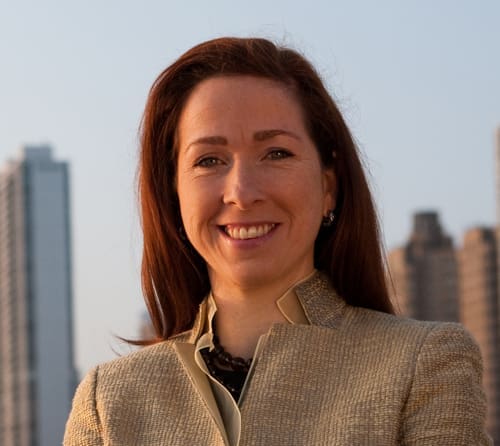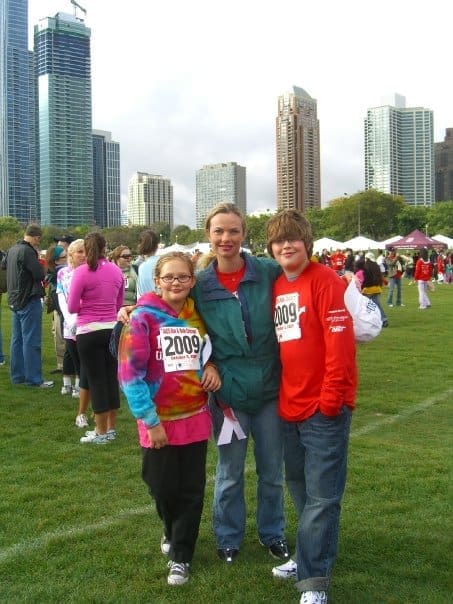AFC’s 2018 Annual Report: Setting the Pace
Review photos from the event
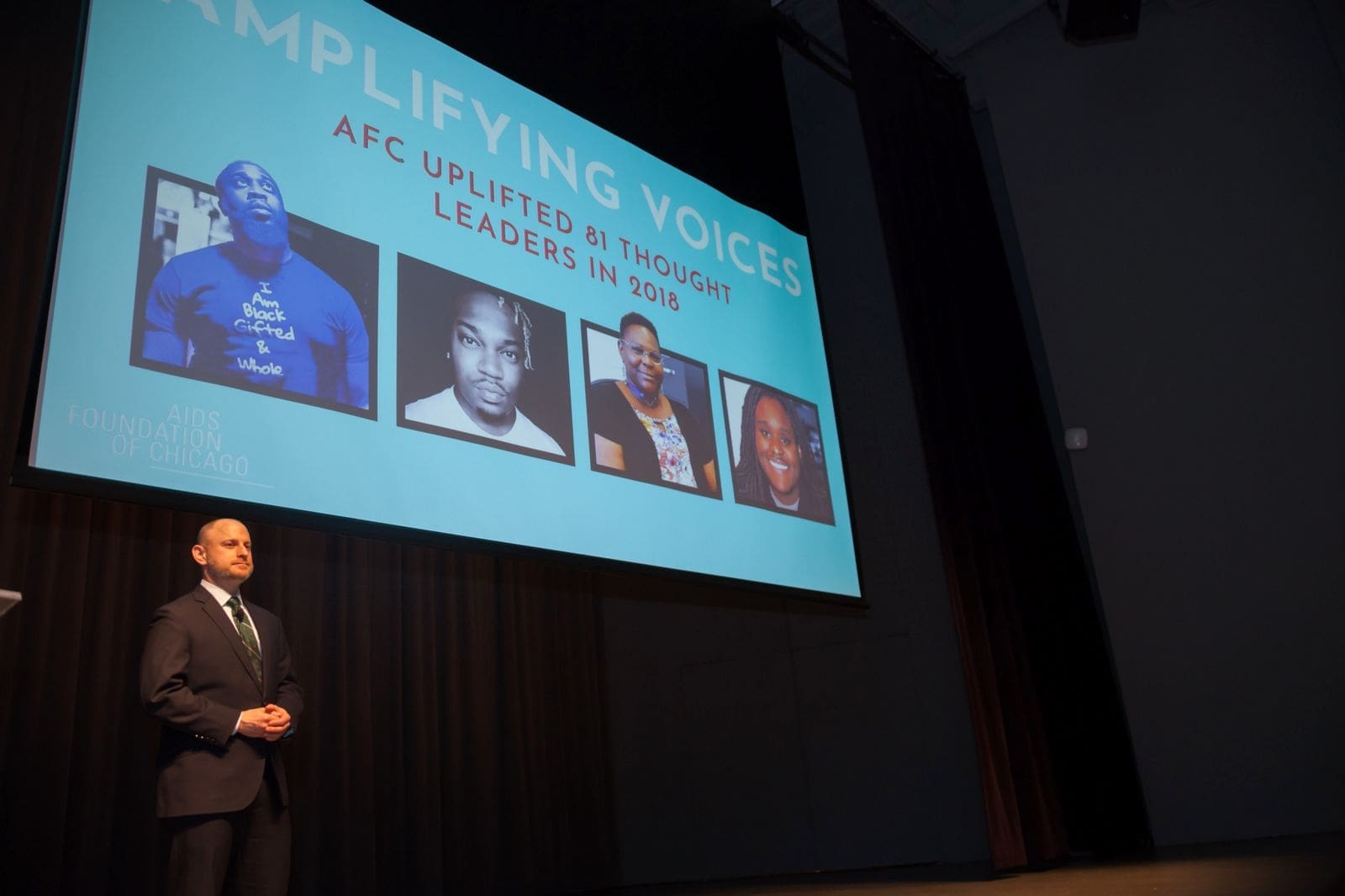 Hello and good evening! Thank you, Anna, for kicking our party off tonight and for leading AFC’s Board to achieve great things in 2018. I’m so grateful for the leadership and support you have offered me and AFC this past year.
Hello and good evening! Thank you, Anna, for kicking our party off tonight and for leading AFC’s Board to achieve great things in 2018. I’m so grateful for the leadership and support you have offered me and AFC this past year.
In 2018, we kicked off a great race toward an amazing goal — a goal we couldn’t have imagined when the AIDS Foundation of Chicago opened its doors 34 years ago. That goal is simple: to end new HIV transmissions in Illinois by 2030. All the work we do at AFC contributes to that goal: from leading case management and housing, to collaborating with the health care system in Illinois, to advocating in Springfield and Washington — we are advancing health equity so that one day we can end the HIV epidemic in Illinois.
Thank-yous
Setting the pace means being a leader and guide for others — we do NOT do this work alone. We owe deep thanks to many people in this room who have contributed to our success in 2018.
In addition to the AFC Board, I want to thank our Associate Board for their deep commitment to our movement. We are grateful for everything you have done for AFC — especially cochairs Brooke Morris-Chott and Keith Bukowski.
Next, I want to recognize the Service Providers’ Council, which is made up of leaders from 32 organizations across the HIV sector in Illinois. Thank you for providing a vibrant, direct connection to the 6,000 people AFC serves each year. Thanks especially to Erie Crawford and Norma Rolfson for leading this group.
Our donors showed deep commitment to our vision of a world in which all Illinoisans thrive. We are so grateful for every dollar you gave to us to fuel our work in 2018.
First, I want to recognize our corporate gifts, which reached more than $1.1 million dollars last fiscal year. Thank you! And thank you especially to 9 companies that are part of our Corporate Partnership Program. They each gave more than $25,000 to AFC with Gilead Sciences and ViiV Healthcare leading the pack.
Foundations that share our vision to end new HIV transmissions have come to the table through about $1.5 million in contributions to AFC. Thank you for sharing our priorities.
Thank you also to government partners like the Chicago and Illinois Departments of Public Health and the U.S. Department of Housing and Urban Development for funding and entrusting AFC’s work in overseeing case management and housing for people living with HIV.
Let’s give all our foundation, corporate, and government supporters a round of applause!
Now, let’s recognize the people who donated to AFC last year. Through events, CommunityDirect teams, online donations, Facebook campaigns, major gifts and more, people like you donated approximately $1.5 million dollars in fiscal year 2018.
Thanks especially to our Founder’s Circle members, who each gave $10,000 or more to advance our work, and Sable Sherer Legacy Society members, who have pledged to include us in their will or estate plans.
Our events not only raise awareness and spirits — they also netted more than $700,000 in fiscal year 2018 to support AFC’s programs. Thanks for fundraising for or attending AIDS Run & Walk Chicago, TEAM TO END AIDS, Tee UP to End AIDS, World of Chocolate, and Dance for Life, presented by Chicago Dancers United.
And here’s some big news for 2019: we have a date for AIDS Run & Walk Chicago! It’s going to be on Saturday, October 5, 2019. Mark your calendar and start your Couch-to-5K 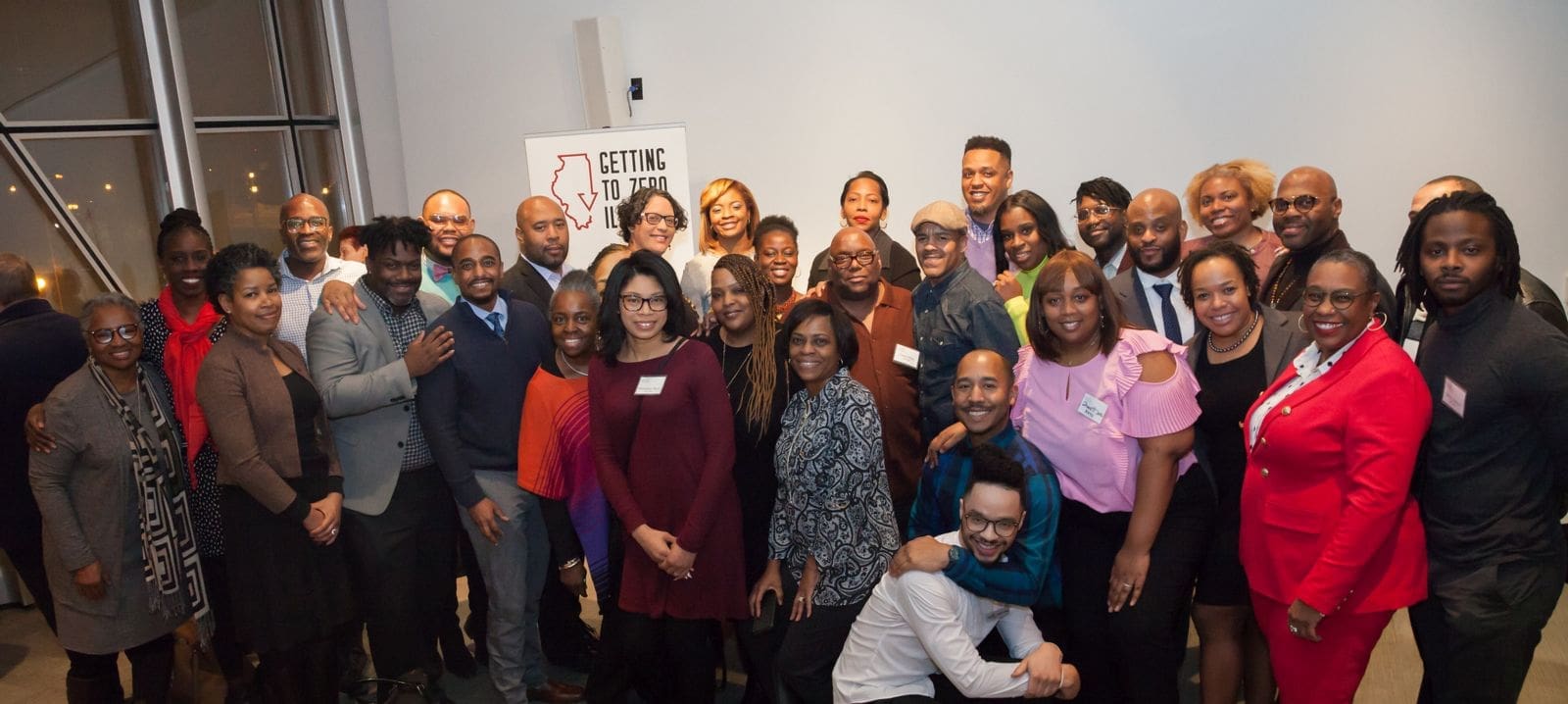 program tomorrow!
program tomorrow!
I want to give an extra-special thanks to Edward and the entire fundraising and special events team for supporting our event attendees, foundations, corporate supporters, and vibrant community of donors.
No list of thank-yous would be complete without recognizing the talented staff of AFC. Thanks for helping us move the needle closer toward health equity through your teamwork, compassion and so much more. I particularly want to thank our Research Evaluation and Data Services team, led by Banita and Joel, and Program Development team, led by Andrea, for crunching many of the numbers you will see on screen tonight. I also am grateful for Laurie and our Finance team and Tom and our Operations team for literally keeping the organization running and making sure we all get paid. Thanks to Brian Solem and Ashley Brown for their amazing work on tonight’s presentation. Thank you!
Epidemiological successes and viral suppression
Our theme this year is setting the pace: AFC’s work sets the tone and vision for the HIV and AIDS service sector in Illinois. HIV service providers across the state have a lot to celebrate: the latest data shows that the number of new cases of HIV in IL has dropped almost 25% over the last decade. Plus, almost 87% of AFC’s Ryan White case-managed clients were virally suppressed last year — that’s a whopping 6% increase from 2017. Viral suppression means that their meds are working and they are undetectable. This is amazing news for them, because it means they’re living healthier lives. It’s also amazing news for HIV prevention, because being undetectable EQUALS being untransmittable! U = U means that people with undetectable viral loads can’t transmit HIV sexually.
We still have so much work to do. But thanks to collaborative relationships across systems, partner organizations, and people in Illinois, we are making strides toward improving the health of people across the state!
Health equity
Health equity is AFC’s ultimate goal — to make sure that everyone has access to health care in the way that works best for them. We wanted to bring back this great graphic from the Robert Wood Johnson Foundation to unpack health equity. Right now, we’re in the top system: all the T2 athletes have the same bike, even though it just doesn’t work for most of the cyclists. That’s equality — full of good intentions but bad outcomes. What AFC works toward is the bottom scenario, where all T2 athletes have access to the bikes they need to finish the race. That’s equity.
AFC’s strategic plan
Health equity has been at the core of AFC’s work for decades, but we officially named it in Positive Momentum, our strategic plan from 2016 to 2018. We focused on four priority areas over those three years: improving health equity, preventing new cases of HIV, being a knowledge and collaboration center, and being a bold voice for change. Tonight, we celebrate the work we achieved in 2018 to close out this ambitious plan. We owe a huge thanks to Kathye Gorosh at AFC and Laurie Alpern, who worked tirelessly to build and execute this plan. Thank you!
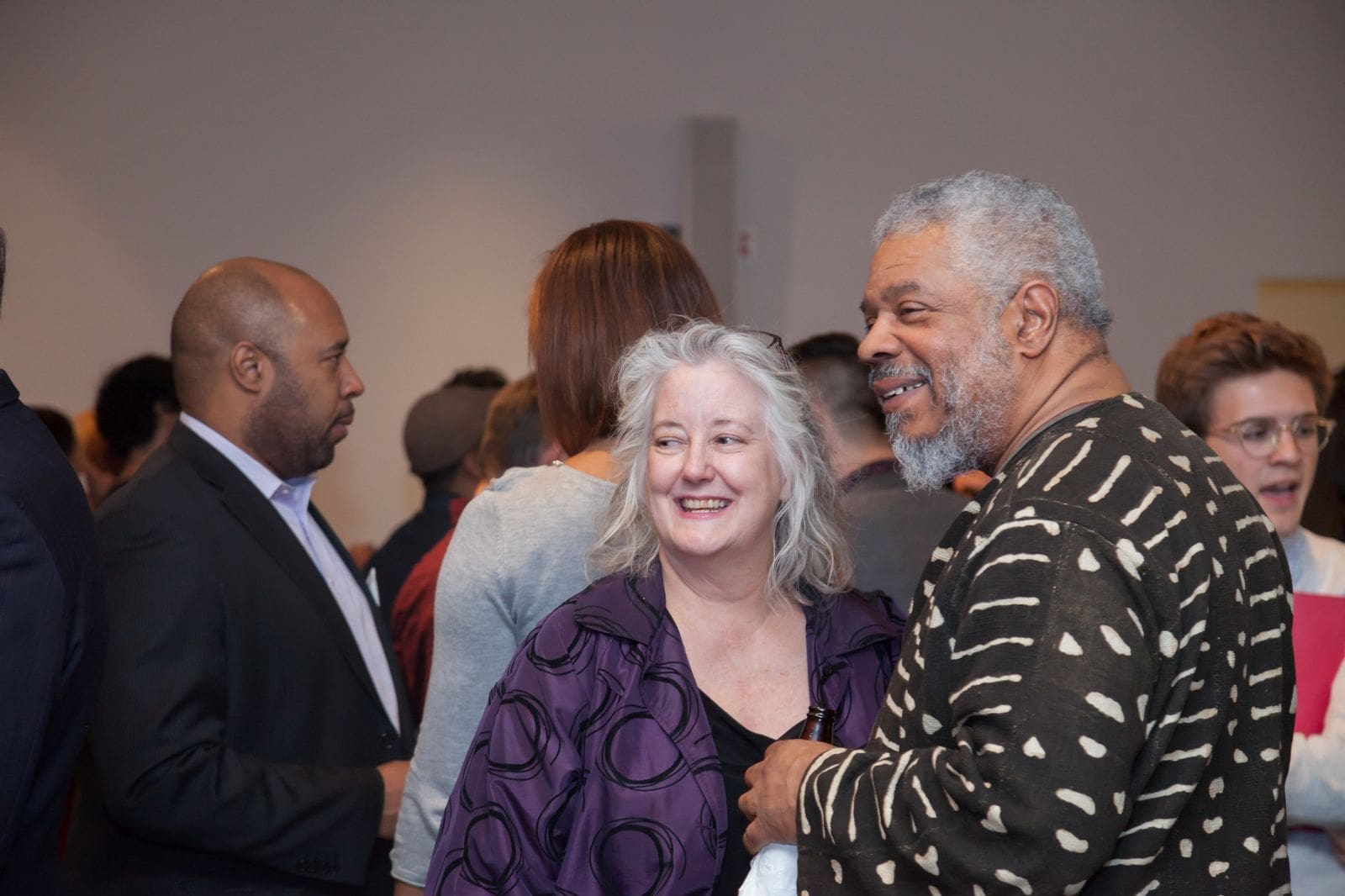 Improving health equity
Improving health equity
Let’s continue talking about health equity — the first pillar of our strategic plan. We moved the system closer to health equity in five big ways last year:
First, by supporting and training 149 case management positions across 36 agencies. Those case managers provided custom support to over 6,200 clients in 2018. Thank you, Bashirat and the Care team, for supporting our case managers and clients, and to all our partner agencies and case managers!
Second, we know that housing IS health care, which is why we connected 890 people to long-term housing and supportive services to help them thrive in their homes. Now, they will have a dramatically better chance at achieving their health goals. Huge congrats to Pete Toepfer and the Housing team for enduring major growth and taking on incredible feats toward ending homelessness.
Third, our innovative, five-year-old CommunityLinks program found 1,314 people who were disconnected from their health insurance for a variety of reasons and helped them get re-engaged in health care. Big kudos to Saul and the Community Links team — our in-house special investigators — and our partner, Aetna Better Health!
Fourth, our Women’s Connection program reached its peak in 2018 as a collaborative space to exchange ideas and build plans to improve the health of Chicago’s Black cisgender and transgender women. We couldn’t have done it without Cynthia, Donnise and L’Oreal.
They are also the team behind a new program called the Safe and Sound Return Partnership, our fifth major step toward health equity. Its goal is to help people leaving jail or prison who are living with HIV to get what they need on the outside. They are working with 52 people now, and their goal is to help an estimated 215 people gain housing, job training, job placement, peer-led support, and so much more. Watch this video to learn more about the Safe and Sound Return Partnership:
Let’s take a moment to thank Dee, who is here with us tonight, and Raven for producing this incredible video!
Preventing new cases of HIV
Our second strategic plan pillar is preventing new cases of HIV. This work looks so different today than it did even five years ago — and AFC supported three groundbreaking methods of preventing new HIV cases last year.
First, there’s PrEP, a pill and a program that prevents sexually transmitted HIV among people who are HIV-negative. AFC continued to steer the 343-member Illinois PrEP Working Group, which leads efforts in Illinois around the stunning PrEP4Love campaign, new opportunities for adolescent access to PrEP, and more. Thanks to Jim Pickett for his enduring leadership in this arena!
Second, there’s U = U, which, as I mentioned before, means that people with an undetectable viral load can’t transmit HIV sexually. We’re committed to supporting our clients in case management to achieve undetectable viral loads — or whatever level they can achieve. We are so proud to know that almost 87% of AFC’s Ryan White case-managed clients were virally suppressed last year.
Third, we had a major victory with female condoms in 2018, or internal condoms, as they are now called, thanks to AFC-led advocacy with the U.S. Food and Drug Administration. After years of leadership through the AFC-housed National Female Condom Coalition, 2018 brought a radical shift in the way internal condoms are regulated, researched and marketed. Congrats to Sara Semelka and the rest of the Policy team for being a loud voice behind internal condom advocacy for so many years. We did it!
Being a knowledge and collaboration center
We can’t call ourselves the pace-setter for the HIV sector if we’re not offering the sector a space to grow, learn and exchange ideas and best practices. That’s why our third strategic plan pillar focuses on our role as a knowledge and collaboration center.
Last year, Cynthia Tucker and Jim Pickett set the stage for four fascinating conferences that featured nationally recognized speakers and over 100 attendees each. They explored topics like race and HIV, U=U, hepatitis C and the opioid epidemic.
The audience for our conferences is the broader HIV community, but we also offer exclusive trainings for the HIV workforce. Last year, we held 49 in-person trainings and 11 online trainings for case managers to help them grow within an ever-shifting environment and help clients with ever-changing needs. Thanks to Mara and the Care team for making the trainings meaningful!
Being a bold voice for change
As always, AFC raised its own voice in 2018 and amplified other voices on a spectrum of issues that impact our communities. Let me offer you a few key highlights that exemplify our final strategic pillar, Being a Bold Voice for Change:
First, we gathered with the Legal Council for Health Justice, Howard Brown Health, and many more partners to challenge the Illinois Medicaid program’s approach to curing Hepatitis C. And because an estimated 1 in 4 people with HIV are co-infected, curing Hep C is essential if we are to improve health equity for people living with HIV. This is Peter McLoyd and amazing advocate, who is living with HIV and was recently CURED of Hep C. Although there has been an easy-to-take cure for hepatitis C for years, the state was restricting access to it for people on Medicaid. Not any longer — thanks to our dialogue (and the threat of a lawsuit by Legal Council for Health Justice), the state changed its policy, and now nearly everyone who needs a cure gets the cure.
Second, with leadership from legislators in Springfield who shared our vision around health insurance that works, we collaborated with the Protect our Care Illinois coalition to help pass a bill that banned short-term health insurance plans in our state. This stopped another one of President Trump’s devastating policies from being enacted here in Illinois.
Speaking of Trump, you can count on AFC to work at the state and national level to defend our community against his administration’s attacks. In our third highlight, we met with leaders in D.C. on 12 trips and brought a team of 8 advocates to AIDSwatch. We navigated the Trump administration’s approaches to health care and HIV, and boosted calls to action from national partners in HIV, immigration, and health equity work.
I want to extend a huge thanks to our Policy and Advocacy team for their tireless efforts to change the conversation about HIV and health equity, and especially Ramon Gardenhire, who just left AFC to work for Governor Pritzker. We’re all excited to have more friends in the governor’s office!
Our Communications team also builds up AFC’s bold voice. Last year, they created space for 81 individuals who represent the communities we prioritize to share their perspectives through storytelling, videos, blog posts, and other mediums. Their voices became AFC’s voice and helped chip away at stigma. Thank you, Comms team!
We are always looking to add new advocates to our ranks! If you want to lend your voice to our work, please text the letters A-F-C to 40649 and get text messages when your advocacy is needed most. Or, join us for our Virtual Advocacy Day on Wednesday, April 24 or our in-person Advocacy Day in Springfield on Tuesday, May 14 to let your voice be heard.
Our next strategic plan
Now that we have closed the books on our 2016-2018 strategic plan, we will build on its core tenets into the next three years. Our new strategic plan, called Positive Momentum 2, revisits the elements that made our previous plan so successful and adds to them.
Racial justice and AFC
Most notably, we have added a new pillar to our strategic priorities: a commitment to strengthening our organizational excellence. Part of strengthening AFC is recognizing our need to work toward ending racism and white supremacy. We will never achieve our mission without first recognizing and dismantling the racist core of so many systems we work within. These systems are part of the reason that HIV disproportionately impacts our priority populations: young Black and Latinx gay men, transgender women of color, and Black women living in high-incidence areas. To start the conversation, we need to look inward. As of February, more than 90% of our staff have attended Undoing Racism, a two and a half day intensive workshop that explores racism and white supremacy. AFC’s Operations and HR teams and the staff Race and Social Justice Committee have worked hard to prioritize diversity, equity and inclusion at our organization and lay the foundation for organizational excellence.
Last year, we built a new set of values for AFC moving into the future. They are: People-first, Compassion, Accountability, Meaningful engagement, Justice in action, and Innovation.
AFC is an assembly of people moving our community forward, and I’m so grateful for the work we have done together to strengthen our organization.
Getting to Zero Illinois
My final note is a glimpse into the future — toward the finish line of our work together: Getting to Zero Illinois. Every success we have described for your tonight has, in some 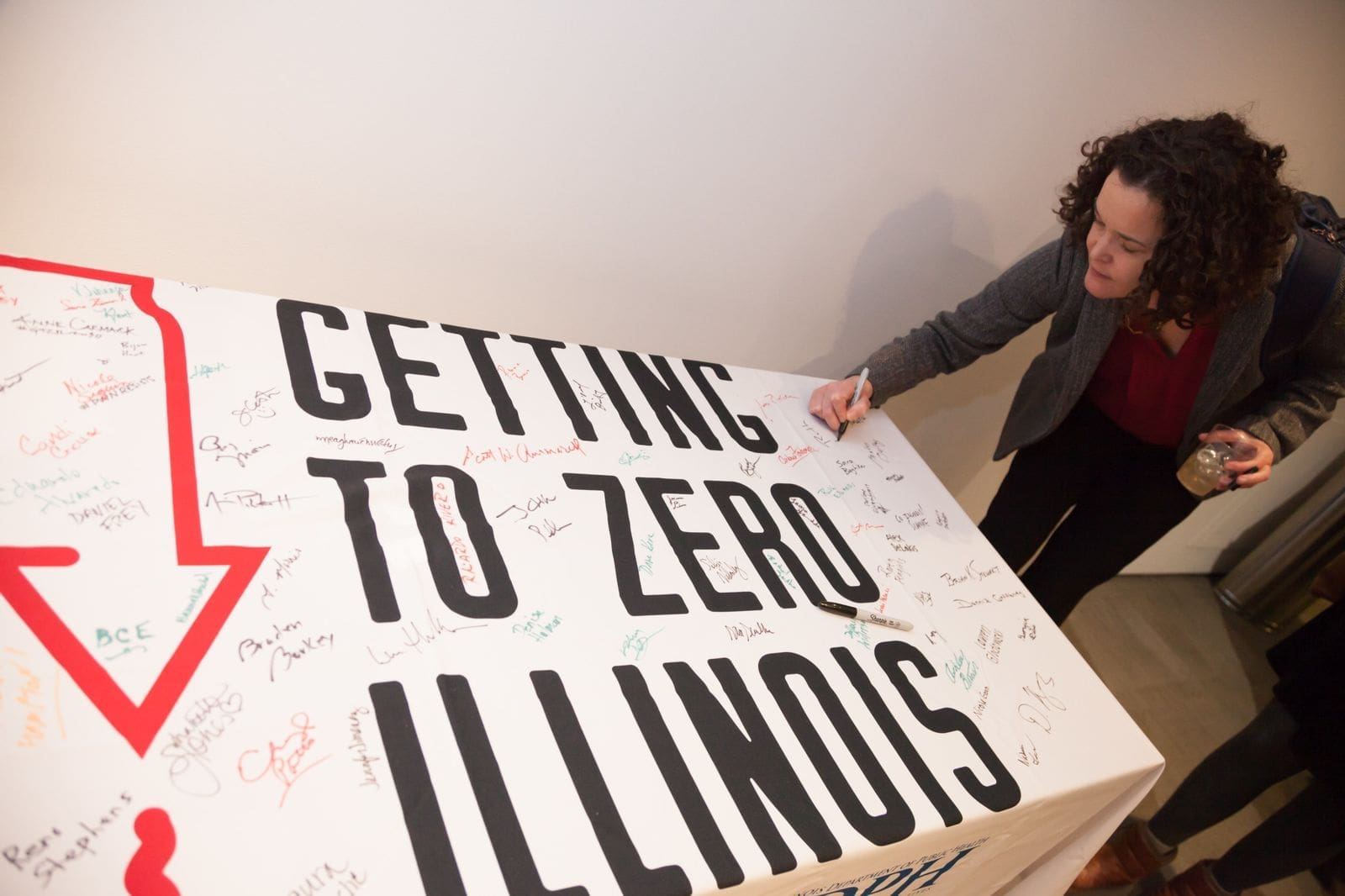 meaningful way, contributed to this plan. We are going to end new HIV transmissions by 2030 through increasing usage of PrEP among HIV-negative folks and HIV medications among HIV-positive people. We’re doing so through making major updates to six components of the HIV care system.
meaningful way, contributed to this plan. We are going to end new HIV transmissions by 2030 through increasing usage of PrEP among HIV-negative folks and HIV medications among HIV-positive people. We’re doing so through making major updates to six components of the HIV care system.
Getting to Zero Illinois is at its core a collaborative effort. We are so grateful to Getting to Zero Illinois’ steering committee, which is made up of health professionals and people living with HIV from across Illinois. Thank you to my co-leaders, Dave and Eduardo at CDPH and IDPH, and AFC staff Sara, Simone, and Meg for being the backbone of this important work. But make no mistake – Getting to Zero will take AFC’s continued efforts to lead policy creation, oversee case management and housing opportunities for our community, and be a leading voice in Illinois against HIV stigma. Stay tuned for the release of our final plan in April.
Farewell!
Thank you once again for being here tonight and for the efforts you made in 2018 to join this race of ours. We will continue to set the pace toward our finish line with your trust and support. Learn more about our efforts last year by visiting pace.aidschicago.org for a full review of our work.
Now, join us for beer, wine and snacks in the main hall — and let’s continue this conversation about reaching true health equity in Illinois!


